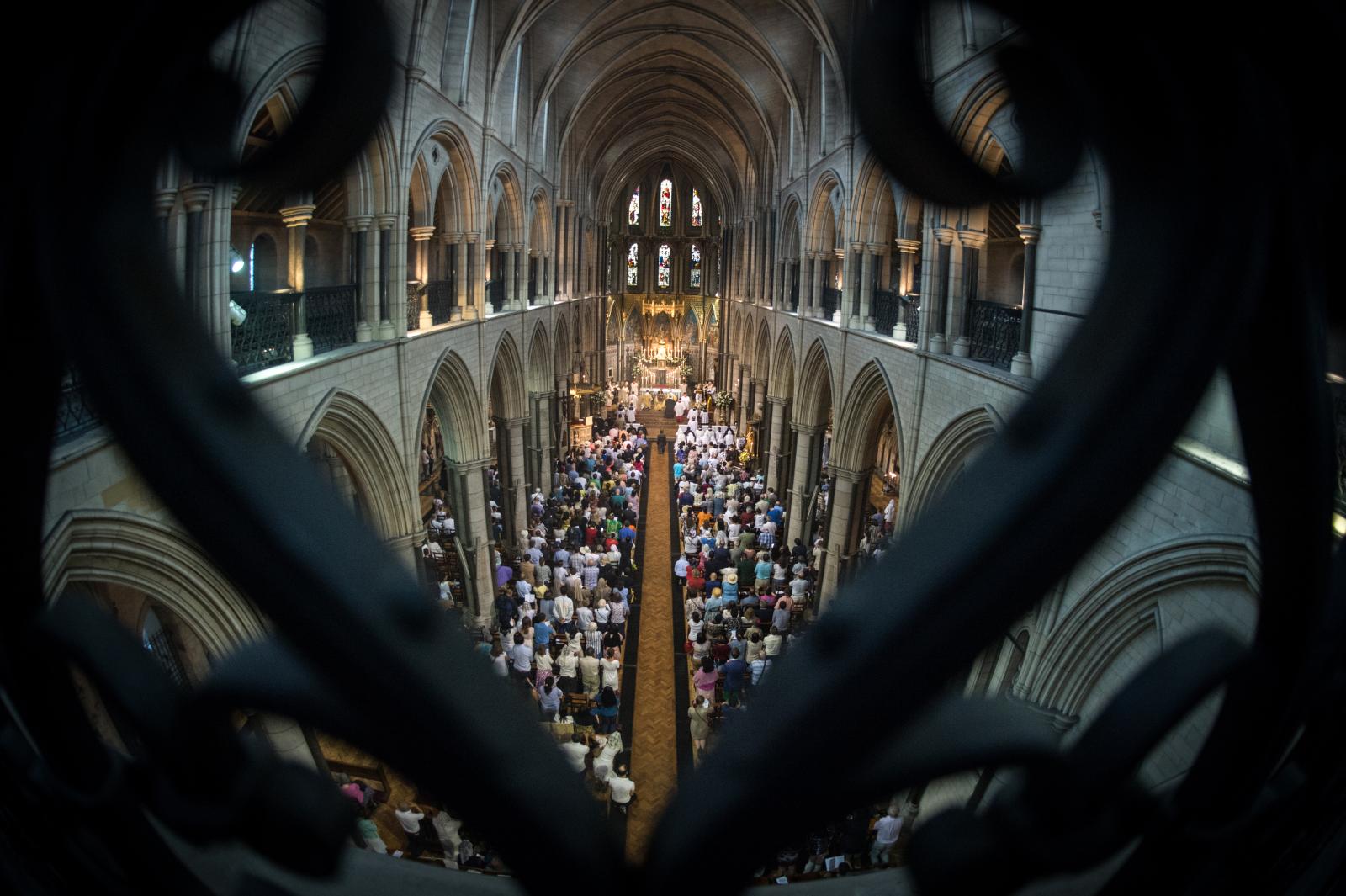Given on the Solemnity of St James on the 24th July 2021 at St James, Spanish Place.
It is a great pleasure for me to be here to celebrate this solemn Mass in honour of St James, especially as we are now in a time of fewer restrictions, enabling us to sing - somewhat quietly - in our praise of God. How appropriate that our first hymn of this new time was the Te Deum, the Church’s greatest hymn of praise!
I am grateful, too, for the presence of the Chargé d’Affaires from the Spanish Embassy. This is a day on which we remember, with gratitude, the generosity of the Spain in the history of this church, from Ely Place, to Hertford House and to this church with so much of its rich adornment.
Many visitors to Spain today will come home with an image of St James in their mind’s eye. There he will be, arm raised, seated on a horse, ready to battle. Here, perhaps, he lives up to the nickname given to him by the Lord: one of the ‘Boanerges’ – ‘sons of thunder’ (Mark 3:17).
That image, seen at the centre of the rose window here in the church, is complemented by another image of St James, also here in this church and famous all over the world. It is James as the pilgrim; James the focal point of the great pilgrimage to Compostela; James, our companion and inspiration for us pilgrims on our journey through life.
The statue is full of symbolism: the protective hat; the bag for simple provisions; the staff for support in weariness; the scallop shell - an invitation to fellowship and a sign of our journey’s end - the finis terrae. All these speak of the humble heart of the one who has focussed their life on the Lord: who knows that all will be provided, in the end; that it is best to journey on life’s way in the great company of the Church; and that out of our poverty the Lord can bring great fruit.
The Gospel passage we have just heard carries for us two great lessons. We hear of loving ambition that a mother has for her two sons: James and John. And we hear of the indignation of the other disciples at this presumption of privilege. How well we recognise these two emotions and the struggles they bring!
Jesus’ reply, then, is addressed not simply to the people surrounding him at that moment, but to each of us, too. Ambition – yes. But as St. Paul says: ‘Be ambitious only for the higher gifts’ (1 Cor. 12:13). And then, Jesus, the great teacher of our hearts, tells us to see clearly that there is only one road that leads to the fulfilment of this ambition: the way of loving obedience to God and the pathway of suffering accepted and offered to Him.
So, when we look again at the image of the statue, we understand its two other symbols: the palm of martyrdom held by St James and the sword, the instrument of his death. This is the mark of the disciple, a longing to be faithful to the Lord, through opposition, through ridicule, through isolation, always wanting above all to see his face, even through the tears of pain and suffering, for he is always there for us to cling to him.
St James is the only apostle whose martyrdom is recorded in the Scriptures, in the Acts of the Apostles. In this he does indeed lead the way into this most important of all battles: the battle for the eternal life of the soul, through faithfulness to the Lord. Yes, he bids us follow him.
The second emotion that comes to the fore in the human drama of the Gospel passage is the indignation of the other apostles. They are outraged at the attention-seeking of the mother and her two sons. It sets the cat among the pigeons and brings out all the worst in the rest of them, arguing about who is best, who ought to win preferment, who deserves the front seats.
How well we know this dynamic, too. And how easily it brings out the worst in us too. And the antidote is clear: we are servants. We do not seek preferment. We willingly offer what we can to those in need. We are enriched and privileged through our giving, through our service. At the end of the day we hope to be able to say: ‘We are merely servants: we have only done our duty’ (Luke 7:10), and know that our peace is to be found there.
St Paul, in his inimitable way, sums up this Christian way of life. He explains that the mystery of Christ can be seen ‘in our mortal flesh’, by the way we live. He explains that we live through our trust in God, ‘that he who raised the Lord Jesus to life will raise us with Jesus in our turn, and put us by his side and you with us’ (2 Cor. 7:14). This is the hope that draws us here today, a hope that has spread its mantle across centuries and countries, drawing us together, with St James and countless other pilgrims and saints, into the great company of the Body of Christ. As St Paul says: ‘You see, all this is for your benefit, so that the more grace is multiplied among people, the more thanksgiving there will be, to the glory of God’ (2 Cor. 7:15).
Today, then, is our day of thanksgiving, and of giving glory to God, with joy and solemnity. Indeed, through the voices of the choir, in the music of Tomas Luis de Victoria, our thanksgiving continues: ‘O light and grace of Spain, most holy James, you who were the first among the apostles, were the first of them to wear a martyr’s crown. Alleluia.’
Amen.
